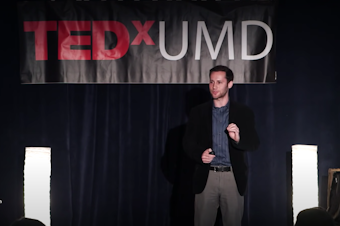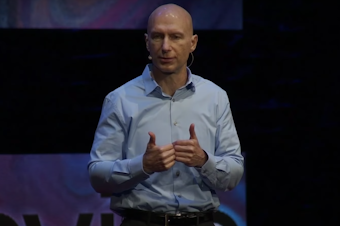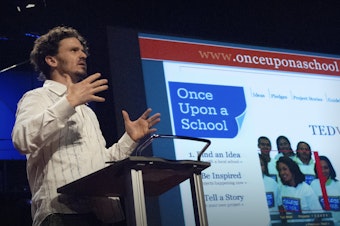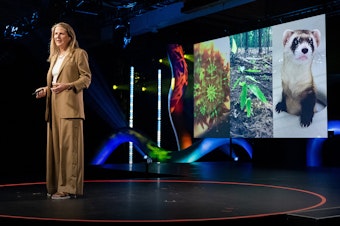TED Radio Hour
By
The TED Radio Hour is a narrative journey through fascinating ideas, astonishing inventions, fresh approaches to old problems, and new ways to think and create.
Episodes
-

Dylan Selterman: What are our dreams — and nightmares — trying to tell us?
We might forget our dreams mere minutes after waking. But psychologist Dylan Selterman says that if we pay attention to them, we could gain new information about our emotions, relationships and more.
-

Craig Richard: Whispers and haircuts — the science of ASMR
Why do so many people experience brain tingles when watching ASMR videos? Physiologist Craig Richard shares the science behind the "Autonomous Sensory Meridian Response," and how it calms the mind.
-
Stuart Duncan: Why do we need safe virtual play spaces?
Bullies are everywhere, especially online. That's why Stuart Duncan created AutCraft: a Minecraft server where kids with autism can play freely.
-
Jacob Collier: A playful approach to creating music
Grammy winner Jacob Collier has been called a musical phenomenon; his work is full of joy and spontaneity. He makes a case for why we should emphasize play, passion, and curiosity over practice.
-
Yana Buhrer Tavanier: Can social activism be playful?
We might think of activism as far from playful. That's not the case for "playtivist" Yana Buhrer Tavanier. Her incubator lab, Fine Acts, encourages whimsical solutions for social change.
-
Kevin Roose: How can we stay relevant in an increasingly automated workforce?
Tech reporter Kevin Roose doesn't want you to be scared of your job becoming automated. He says that rather than competing with machines, we should work to develop our fundamentally human skills.
-
Irma Olguin: Why We Should Bring Tech Economies to Underdog Cities
Irma Olguin wants to bring the tech industry to cities like her hometown, Fresno. She believes building a support system for tech workers will strengthen communities and revitalize undervalued cities.
-
Jess Kutch: Can unions address the changing needs of workers today?
From unionizing to striking to quitting, employees are taking power into their own hands. Labor organizer Jess Kutch explores the effectiveness of collective bargaining to affect change.
-

Dave Eggers: How Can Kids Learn Human Skills in a Tech-Dominated World?
Fiction can serve as a window into multiple realities--to imagine different futures or understand our own past. This hour, author Dave Eggers talks tech, education, and the healing power of writing.
-

Ryan Phelan: How gene technology can save species on the brink of extinction
What if we could rescue endangered species before they disappear? Biotech entrepreneur Ryan Phelan explores how genetic engineering tools can save species that would otherwise go extinct.
-

Nabiha Saklayen: Could lasers make stem cell therapy available to everyone?
Stem cells have long been heralded as a potential tool to treat illnesses. Nabiha Saklayen explains how it's still early, but scientists are getting closer to turning this vision into a reality.
-

Jennifer Doudna: What does CRISPR mean for the future of human evolution?
In 2011, biochemist Jennifer Doudna helped discover the genetic editing tool CRISPR. Today CRISPR is actively deployed in clinical trials with the potential to cure disease—and alter human evolution.